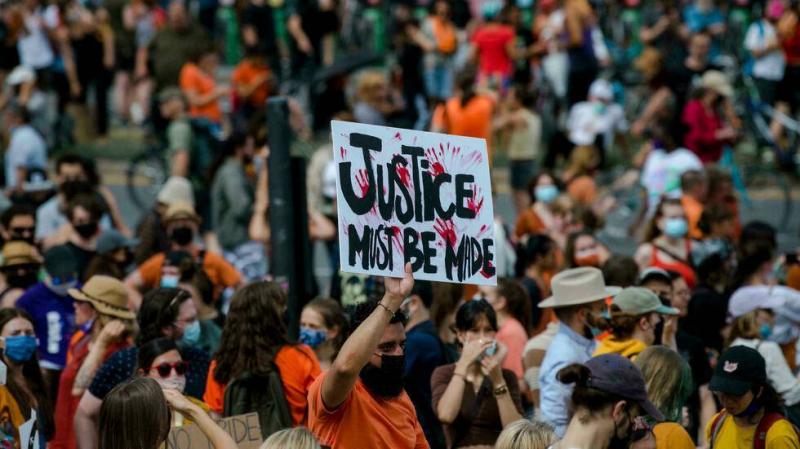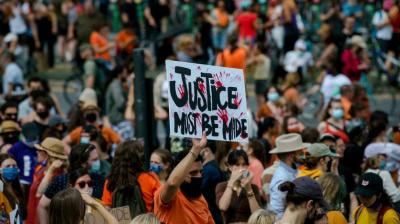As more information about the painful history of the residential schools where Indigenous children were sent unfolds, many shocked Canadians are demanding further steps to highlight the truth as a pathway to reconciliation. "This is definitely a turning point," says Gilan Picard, head of the Assembly of First Nations in Quebec and Labrador. He adds, "People are more responsive now," as they "want to know the truth" about this dark chapter in Canada's history. For reasons including a report from 2015, details of this forced assimilation and violence perpetrated at those institutions have reached a slightly larger audience of non-Indigenous Canadians in recent years. However, widespread anger erupted in recent months following the discovery of hundreds of unmarked graves on the grounds of several of these residential schools.
Tens of thousands of Indigenous children from various tribes were forcibly sent to these Catholic schools across the country, from the late 19th century until the 1990s, where they were separated from their families and cultures. Thousands died in these schools, and many were subjected to physical and sexual abuse, according to a commission that concluded that the Canadian government committed "cultural genocide." In 2008, Prime Minister Stephen Harper issued an apology on behalf of the Canadian people regarding these residential schools.
Montreal citizen Marie Christine Bouafane-Fournier, 33, expressed her shock at the discoveries, saying, "It was expected that we would discover something like this one day." However, she decided to channel that shock into action. Instead of receiving gifts for her birthday earlier this month, Bouafane-Fournier asked friends and family to donate money after more information emerged regarding "residential schools, colonial genocide, and the disappearance of Indigenous women and girls." The "Native Women's Shelter of Montreal," which benefited from the fundraising, stated, "It was a simple step" but one with significant implications. Nakuset, the shelter's director, confirmed that "actions matter more than words," considering these steps a part of "reconciliation."
While some Canadians chose to respond to the news by supporting Indigenous communities through financial contributions, others directed their anger at the Catholic Church. Vera, 49, stated that the recent discovery of graves made her reach a final decision, adding, "It’s a commitment gesture and also a message I want to convey." Vera, born into a Catholic family in Granby, explained, "They were robbed of their land, children, culture, names, and lives. Everything was taken from them." The discovery of the unmarked graves was a "major shock" to Canadian society, according to anthropology professor Marie-Pierre Bousquet at the University of Montreal. She said, "People realized that (the legacy of residential schools) was not just black-and-white images of children in classrooms across the country. It became a concrete reality."
Bousquet believed that "this is not the image Canadians had of their country. It is not a country where children are secretly buried." She added, "They consider (their country) a multicultural democracy with a bright past and very open spaces, not a country built on genocide. We finally realized that this was a myth. It's very harsh information." Bousquet thinks that more Canadians will want to be "informed" about the past of Indigenous peoples in Canada as research concerning residential schools continues. Experts estimate that nearly 150,000 children attended these schools, with more than 4,000 of them having died in these institutions.




